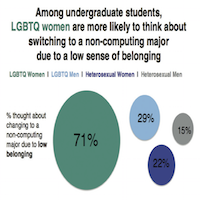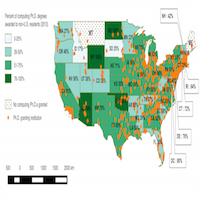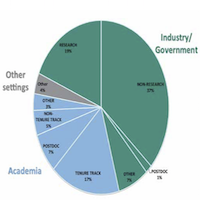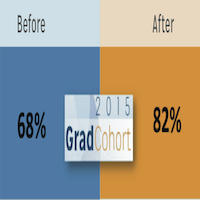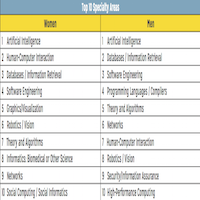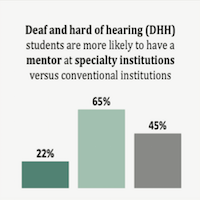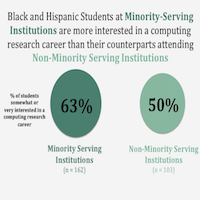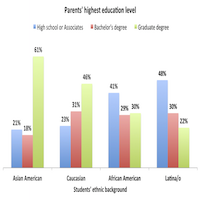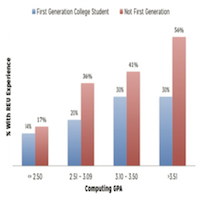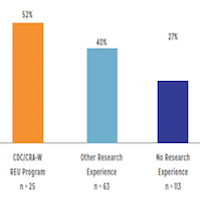
Racial/ethnic Minority Students Who are CDC/CRA-W REU Participants are Particularly Likely to Apply to a Graduate Program in Computing
A sample of racial/ethnic minority undergraduate students graduating with a computing major (n = 201) reported whether they had applied to a graduate program in the fall. Students who had participated in a CDC/CRA-W REU program were significantly more likely to have applied to graduate program in computing than their peers with no undergraduate research experience (p < .05). Among students who had other research experiences and students with no research experience, there was no difference in graduate school application rates (p = .13). Importantly, this analysis controlled for students’ college GPA and parental education level, indicating that participating in a CDC/CRA-W REU program predicted applying to a computing graduate program over and above GPA and parental education level.


